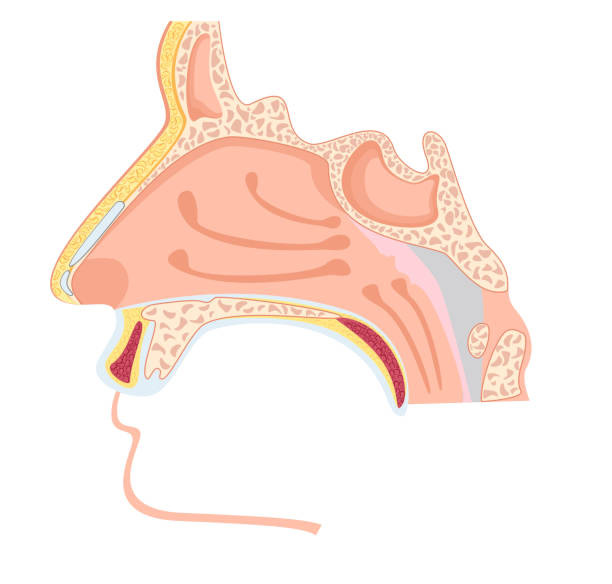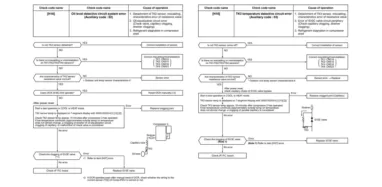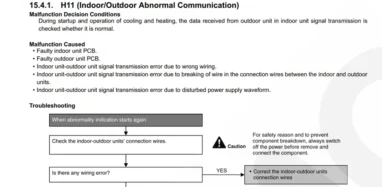Everything in this world which humans are using has both positive and negative aspects. With the increasing temperature every year, people worldwide are installing at least one air conditioner in their home, office, workshop, etc.
With all the benefits and positive things coming with this fantastic appliance, there are a few things that should be considered as they can cause some real issues.
You may think that we are talking about an increase in utility bills, but the talk is about something of much more importance. The question that arises in dry months is, can air conditioning cause nose bleeds? Can sleeping under the ac get you sick?
Well, this is a valid question, and below is the detailed discussion that will focus on almost all minor to major aspects of the issue.
Can sleeping in an aircon room cause nosebleeds

During the day, while we are awake, we keep on drinking water and eating food. This factor helps us to maintain the moisture level in our bodies while sitting in an aircon room. Even if the air inside the room has minimum humidity, the water will not let the air conditioner completely dry out our skins.
This is why the cases of nose bleeding are almost none during the days, but this issue can occur more often during the night. Also, most people breathe via their mouth during the night instead of their nose. This factor can also increase the chances of getting dry nasal and bleeding.
The air conditioner keeps on dehumidifying the air during the night while we do not have anything to maintain our moisture level. Once the moisture level goes down less than 30%, the nasal air passage will begin to dry, and the blood vessels will be exposed. This thing can lead to breakage of the skin and will eventually result in nose bleeding.
Staying in an air-conditioned room for a long time will not only cause your nose to bleed but can also affect mucous membranes by drying them out completely. This dryness can cause some temporary issues such as illness, fatigue, or sometimes upper respiratory infections and ear infection as well.
Does dry indoor air cause nosebleeds

Dry indoor air can cause nose bleeds, and there is no single opinion that contradicts that claim. Not only in an indoor environment, but your nose will also start to bleed even if you are outdoors and the air has dried out to a greater extent.
There is always humidity in the air, which means that air has tiny water droplets, usually known as moisture. This moisture keeps our skin smooth and flexible. While sitting indoors where the air is being dehumidified for a relatively long time, there are possibilities that the air will begin to extract moisture even from your skin.
Once your nasal passage becomes completely dry, the skin will not remain flexible and soft. Thus, your nose will begin to bleed, and this is a natural effect. There is nothing to worry about as this is just a temporary issue, and the bleeding will stop just by washing your nose with fresh water.
Does air conditioning dry out nasal passages

We all know that air conditioning has the function to dehumidify air so that the air can be cooled with minimum effort. Although an air conditioner performs dehumidification as a background function, if it is running for a long time, moisture can be removed from the air to a greater extent.
On extremely hot summer days, people tend to stay air-conditioned almost 24/7. Is it ok to run an air conditioner 24/7?
It depends on the individual. Leaving aircon on 24/7 can protect us from heat and high temperature but at the same time, it brings some harmful effects as well. Being exposed to the air conditioner’s cool air for a long time can definitely cause the human skin to dry out completely. Please refer to our previous guide to learn how to avoid dry skin in air conditioned room.
An air conditioner has to remove moisture from the indoor environment to make you feel cool and comfortable. This can absorb moisture from your nasal passages as well. Sometimes, it can also lead to itching, pain, or flaking.
How do i stop my nose bleeds when my air conditioner is ON

Mucus is one of the most important parts of our body as it prevents various kinds of bacteria, viruses, dust, and smoke from entering our bodies through our noses. To keep yourself and your nasal passages moisturized and humidified, it is highly recommended to get an HVAC humidifier installed in your room or office. Is dry mode same as dehumidifier? They have similarities and differences.
If you don’t want to install a humidifier, you can stop nose bleed by using a saline rinse. This will also allow your nasal passage to stay moisturized for a relatively long time. In a nutshell, keeping yourself hydrated and moisturized is one of the best methods to keep yourself safe and prevent nosebleeds to a greater extent.
What is the best way to prevent a nosebleed in an air conditioner room

There are a lot of ways that can help you to prevent a nosebleed while sitting in your air-conditioned room. You can prevent this in two different ways; one is by taking help from the technologies and appliances while the other is simply by changing your habits.
One of the best ways to prevent a nosebleed in an air conditioner room is to simply install a high efficient humidifier in your room. This HVAC system will ensure that the humidity inside an aircon room doesn’t go down to 30%. There are many humidifiers in the market and you can choose the one that suits you the best. One thing is sure that installing a humidifier in your room will add up to your utility bills and increase your expenses in various ways.
If you don’t want to spend money on an extra appliance, you will have to maintain your body’s moisture level. One of the best things to make this happen is to drink a lot of water while you are in an air-conditioned room. Getting out of the aircon room and walking for a while in the outside environment may also help you a lot. Before sleeping, it is better to have some juices so that the moisture can be painted during the night.
Best aircon mode for nosebleed
There are many different modes that can help in varying time and weather conditions. The most common aircon modes ( also known as air conditioner symbols ) available in almost all kinds of air conditioners include the following:
- Cool Mode
- Sleep Mode
- Dry Mode
- Turbo Mode
- Fan Mode
- Energy Saver Mode
- Quiet Mode
- Heat Mode
- Automatic Mode
From all these above-entitled modes, all are good for nosebleeds except for the dry mode. The sole purpose of dry mode is to reduce the level of humidity in the air. This mode can increase the chances of nose bleed to a greater extent.
Air conditioner fan mode is considered the best if you feel dryness in the air. In fan mode, the compressor stops working and there will be no coolant coming out of the air conditioner. The fan will only blow air and it will definitely reduce the chances of nosebleed. It is recommended not to use dry mode if you are feeling dry nasal passages.
I also strongly recommend you to learn how to stop runny nose in air conditioning.
Dr. Sagert specializes in neurology and internal medicine. Currently work in the corvallis clinic. She graduated in 2006 from Loma Linda University School of Medicine. 15 years+ experience.


